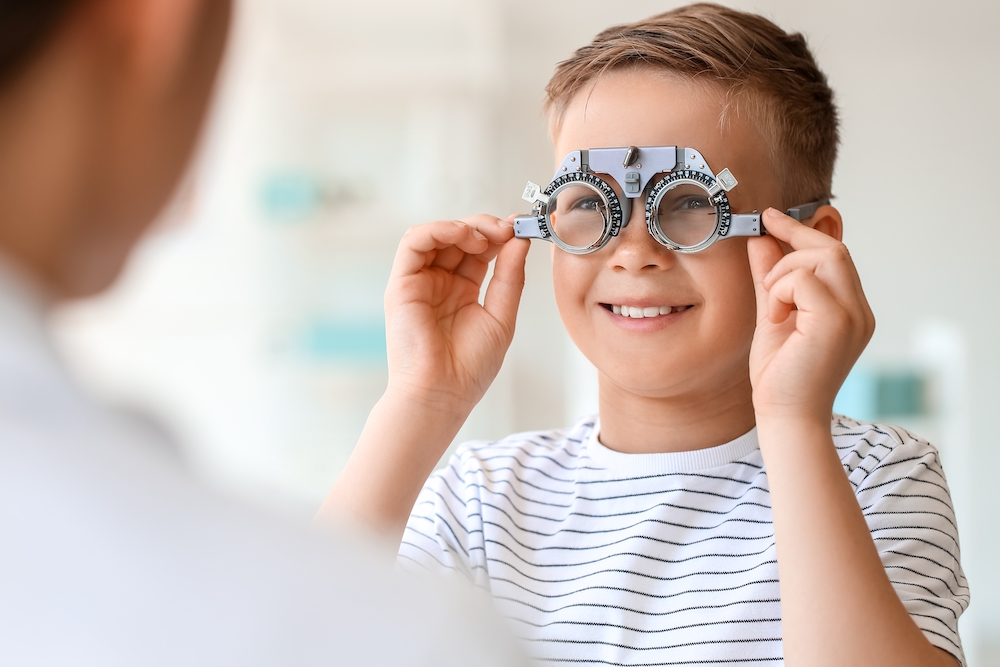
Are eye exams essential for children? Yes! Why is it necessary to examine the eyes during childhood? Eye exams are vital for children because 80% of everything they learn is visual.
Every child must have healthy eyes for social growth, success at school, and overall well-being. An uncorrected eyesight problem may hinder a child's capacity to explore their world to their full potential.
Common Eye Health Problems in Children
Refractive errors such as hyperopia, myopia, and astigmatism are common vision problems in children. Children are most affected by these errors and other eyesight issues such as strabismus, amblyopia, or loss of vision.
Myopia - Children with myopia are near- or shortsighted. Objects in the distance look blurry, but close-up ones look clearer.
Hyperopia - Also known as far- or long-sightedness. Nearby objects look blurry but faraway objects look normal.
Astigmatism - An anomaly with the shape of the eye lens that blurs vision at all distances (near, far, and in-between). Children with hyperopia or myopia are more likely to develop astigmatism.
Amblyopia - It also goes by the name lazy eye. It is an eye condition where the eye and the brain are not working together. As a result, the child sees better out of one eye and not the other. If not addressed, amblyopia can cause vision loss.
Strabismus - It is also called cross-eyes. Strabismus happens when the eyes are not aligned correctly and can trigger amblyopia.
Vision Loss - A loss of ability to see that cannot be rectified by eyeglasses or contact lenses.
A pediatric eye exam will assess your child's visual health and check for any signs of the eye conditions highlighted above. Timely detection and treatment are crucial in ensuring the health of your child's vision and preventing vision loss.
Vision Screening and Eye Exams
Is an eye exam necessary even after your child has undergone vision screening? Absolutely. When compared to eye exams, vision screenings are not as thorough. The screening only checks for a few eye problems, such as myopia, and a child can pass a vision screening test even if they have issues with their eyesight.
The pediatric optometrist examines your child's internal and external eye health during an eye exam. It includes assessing the child's internal and external eye structure to ensure the features are healthy and working correctly. The eye exam also evaluates visual skills such as eye-tracking and depth perception.
How Often Should Your Child Have Eye Exams?
A child's visual skills and abilities are essential to success at home and school. Because of that, optometrists recommend that children have a comprehensive eye exam before pre-school and annually after that. A child's visual acuity continues to develop as they grow until they are about five years old. Thus, routine eye checkups will assess how your child's vision is changing and rule out underlying eye issues.
Has your child had their first eye exam yet? Talk to your doctor about pediatric eye exams and learn what is appropriate for your child.
For more on the value of routine pediatric eye exams, visit Franklin Family Eye Care at our office in Mt. Juliet, Tennessee. Call (615) 754-4733 to schedule an appointment today.







